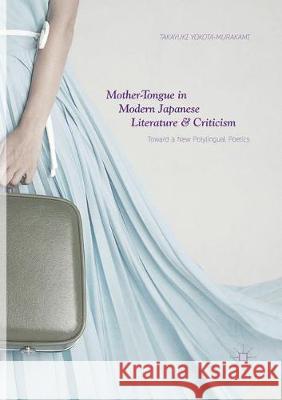Mother-Tongue in Modern Japanese Literature and Criticism: Toward a New Polylingual Poetics » książka
topmenu
Mother-Tongue in Modern Japanese Literature and Criticism: Toward a New Polylingual Poetics
ISBN-13: 9789811341748 / Angielski / Miękka / 2018 / 183 str.
Kategorie:
Kategorie BISAC:
Wydawca:
Palgrave MacMillan
Język:
Angielski
ISBN-13:
9789811341748
Rok wydania:
2018
Dostępne języki:
Ilość stron:
183
Oprawa:
Miękka











